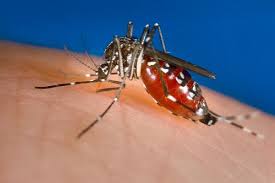
GREENE CO. – Greene County Health Department officials report a mosquito sample collected in Greene County has tested positive for the West Nile Virus.
So far, no human cases have been detected in the Hoosier state this year. The Indiana Department of Health expects West Nile Virus activity to continue across the state during mosquito season, which continues through the first hard freeze.
The Monroe County Health Department confirmed this week that one sample from one pool of mosquitoes (up to 100 mosquitoes per pool) tested positive for West Nile Virus.

The Indiana Department of Health collected the sample for its mosquito surveillance program.
State Health Officials are now urging precautions for Hoosiers.
West Nile Virus is transmitted to humans by mosquitoes that have first bitten an infected bird. A person bitten by an infected mosquito may show symptoms three to 15 days after the bite. Per the Centers for Disease Control and Prevention, most people infected with West Nile Virus will not feel ill, about one in five people will develop a fever and other symptoms, and about one out of 150 will develop a serious, sometimes fatal, illness.
Residents can reduce their risk of getting West Nile Virus by preventing mosquito bites.
The General Environmental Division of the Monroe County Health Department wants everyone to be active in mosquito prevention. Mosquitoes need standing water for their lifecycle. A birdbath should be checked often to prevent breeding and replaced with water if required. If standing water is found after a rainfall, remove the source
Persons who develop the following symptoms should see a doctor immediately:
- high fever,
- severe headache,
- neck stiffness,
- muscle weakness or paralysis,
- nausea or vomiting,
- sore joints
- confusion
There is no specific treatment for West Nile Virus, and no vaccine is available for humans.
In severe cases, intensive supportive therapy, including intravenous fluids, airway management, respiratory support, prevention of secondary infections (pneumonia, urinary tract, etc.), and good nursing care, is recommended.
The best way to prevent a mosquito-borne disease is to follow the “Three D’s:
DRAIN—Anything holding water can breed mosquitoes, from soda bottle caps to discarded tires. Check your property for these sources of standing water and dump them out. At least once or twice a week, empty water from flowerpots, pet food and water dishes, birdbaths, swimming pool covers, buckets, barrels, cans, wheelbarrows, boats, cargo trailers, toys, and other items outside your home. Empty and store wading pools for kids on their side and any other sources of standing water outside your home.
DRESS—Wear long-sleeved shirts, long pants, and hats to protect against bug bites. You can further protect yourself by tucking your pants into your boots. Wearing long-sleeved shirts and pants is a great way to prevent mosquito and tick bites.
DEFEND—When outdoors, Wear insect repellent with DEET, Picaridin, or Oil of Lemon Eucalyptus on exposed skin. Another effective repellent is Permethrin. Be sure to follow the instructions on the labels when using these repellants.
More information on West Nile Virus and other mosquito-borne diseases is available here.
.



